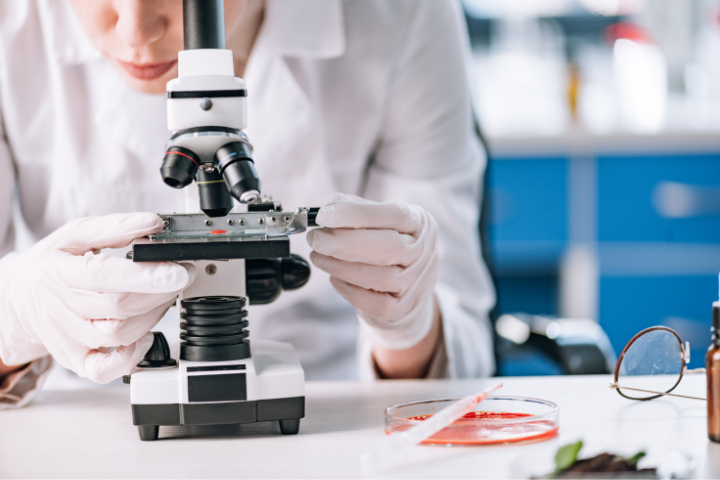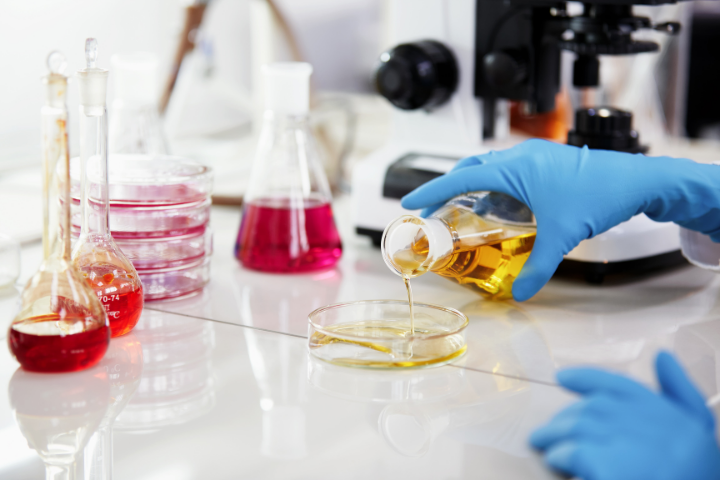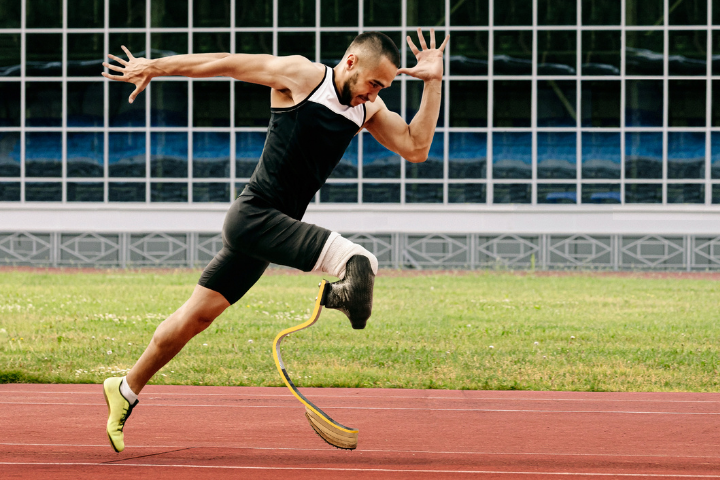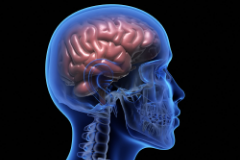SCIENCE DOMAIN
Megan Iskov
Science Instructional Leader
Our Science program is designed to foster an interest in science and a curiosity in the wider world. You will undertake study of the structure and behaviour of the physical, social, and natural worlds through observation and experimentation.
In the Middle School (Years 7 & 8) you will have the opportunity to develop ideas about science that relates to your life and living. Developing skills in observation, prediction, data recording and critical thinking.
During the Pathways (Years 9 & 10), students study science concepts associated with each of the disciplines: biology, physics, chemistry and earth science in self-selected and specific subjects, allowing further exploration of topics of interest.
The VCE program offers units in Physics, Chemistry, Biology, Psychology and Environmental Science. These courses recognise the sequential nature of knowledge in the field and enable the development of depth of understanding of key concepts, processes and contexts.
Biology 1-2

- Investigate how living things function
- Conduct experiments in photosynthesis, respiration, digestion and more
- Explore genes, genetics and inheritance
Subject Code: V1SBI
Year Level: 11
Unit 1: How do organisms regulate their functions?
- How do cells function?
- How do plant and animal systems work together?
- How can scientific investigations further our understanding of how organisms survive?
You will explore how systems function in vascular plants and in digestive, endocrine and excretory systems in animals. You will examine some fundamentals principles of cellular biology by investigating the structure and functions of cells. You will explore cell growth, cell replacement and cell death. You will become familiar with the key events and regulation of the cell cycle by considering the properties of stem cells and their role in differentiation, specialisation and renewal of cells and tissues.
Unit 2: How does inheritance impact on diversity?
- How is inheritance explained?
- How do inherited adaptations impact on diversity?
- How do humans use science to explore and communicate contemporary bioethical issues?
You will focus on cell reproduction and the transmission of biological information from generation to generation. You will explore the mechanisms of asexual and sexual reproductive strategies and investigate the inheritance of characteristics from one generation to the next. By analysing patterns of inheritance, interpreting pedigree charts and predicting outcomes of genetic crosses you will analyse the role of genetic knowledge in decision making about the inheritance of genetic conditions.
Assessment
- Course work
- Topic tests
- Practical investigations (Unit 1)
- Investigation of an issue (Unit 2)
- End of semester exam
What sort of student would like Biology?
Someone who:
- Has an interest in the workings of the human body
- Is curious about how chemistry and biology combine to create the living world
- Is interested in studying health and/or medical sciences or any other aspect of the natural world.
Pre-requisites
One or more of the following Pathways subjects are highly recommended: BioMed - Broken Bodies, BioMed - Disease & Diagnosis, Origins.
Chemistry 1-2

- Conduct experiments that explore the diversity and properties of modern metals including polymers, nanoparticles and medicines
- Further your understanding of the periodic table by analysing the diversity of metals and non-metals
- Delve into the unique properties of water by investigating solubility, ion concentration and pH.
Subject Code: V1SCH
Year Level: 11
Unit 1: How can the diversity of materials be explained?
- How can knowledge of elements explain the properties of matter?
- How can the versatility of non-metals be explained?
- Research investigation
During Unit 1 Chemistry you will investigate the chemical properties of a range of materials from metals and salts to polymers and nanomaterials. Using your knowledge of elements and atomic structure you will explore and explain the relationships between properties, structure and bonding forces within and between particles. You will apply your knowledge during practical investigations to determine such information as the relative masses of elements and the composition of substances.
Unit 2: What makes water such a unique chemical?
- How do substances interact with water?
- How are substances in water measured and analysed?
- Practical investigation
Water is the most widely used solvent on earth. In Unit 2 Chemistry you will explore the physical and chemical properties of water by investigating solubility, concentration and pH. Important reactions such as precipitation, acid-base and redox are explored in depth. You will apply a range of practical skills to determine concentrations of chemical contaminants and explain observations and data from experiments.
Assessment
- Course work
- Practical activities
- Topic tests
- Research investigations (Unit 1)
- Practical investigation (Unit 2)
- End of semester exam
What sort of student would like Chemistry?
Someone who:
- Has an interest in science
- Wishes to find out more about how chemistry affects the way we live
- Wishes to develop their knowledge in how we interact with, develop and manipulate modern materials.
Pre-requisites
One or more of the following Pathways subjects are highly recommended: Our Chemical and Physical World, Electrochemistry.
Environmental Science 1-2

- Explore how living things interact with the non-living world in a variety of ecosystems
- Undertake fieldwork to collect data to examine disruptions to local ecosystems
- Analyse pollution and other human impacts
Subject Code: V1SEN
Year Level: 11
Unit 1: How are earth’s dynamic systems interconnected to support life?
- How is the natural environment organised and inter-connected?
- How has the Earth’s environment changed over time?
- How do scientific investigations help develop our understanding of how Earth’s environment supports life?
You will investigate how living things are able to survive in ecosystems as diverse as deserts, seabeds, the tropics and Antarctica, as well as in backyard gardens and ponds. You will apply this knowledge and develop practical techniques by undertaking fieldwork and scientific investigations to examine change or disruptions to ecosystems and local landscapes over time.
Unit 2: What affects earth’s capacity to sustain life?
- How can we manage pollution to sustain Earth’s systems?
- How can we manage food and water security to sustain Earth’s systems?
- How do scientific endeavours contribute to minimising human impacts on Earth’s systems?
You will consider how pollutants impact on Earth’s environment. You will use this information to recommend options for managing the local and global impacts of pollution. The characteristics of a sustainable food and water systems is our second focus of study. You will investigate how different systems are aimed at securing the Earth’s food and water supplies.
The Unit culminates in a student-led scientific investigation on the effectiveness of managing a selected pollutant of interest and/or in securing water or food. This task is based on a local, regional or global case study.
Assessment
- Laboratory or fieldwork activity presented as a scientific report
- A logbook of practical activities
- Analysis and evaluation of a case study
- A response to an issue or media article
- A designed solution to an environmental issue or challenge
- Evaluation of stakeholder perspectives in environmental management
Practical work
Practical work is a central component and may include laboratory experiments, fieldwork, simulations, modelling and other direct experiences.
Pre-requisites
One or more of the following Pathways subjects are highly recommended: Ecology and Environment, Origins, Our Chemical and Physical World.
Physics 1-2

- Investigate heat, energy, electricity and subatomic particles
- Conduct experiments to further your appreciation of motion
- Explore in depth one aspect of physics of your choosing
Subject Code: V1SPH
Year Level: 11
Unit 1: What ideas explain the physical world?
- How can thermal effects be explained?
- How do electric circuits work?
- What is matter and how is it formed?
You will explore how physics can explain all manner of natural phenomena. You will consider thermal concepts, such as the kinetic model of matter, to investigate heat and explore climate science. You will evaluate common analogies used to explain electricity and to better understand electrical safety; and explore current, scientifically accepted, theories that explain how matter and energy have changed since the origins of the universe.
Unit 2: What do experiments reveal about the physical world?
- How can motion be described and explained?
- What
You will study a ‘core’ topic which involves investigating forces and the concept of energy to investigate everyday motion. You will design and conduct your own experiment, as part of our final Area of Study assessment and, by using your own data and observations, draw conclusions to describe and explain motion.
A second “optional” topic will enable you to pursue an area of interest by investigating a specific theme from a predetermined list: Twelve options are available for selection in ‘area of study 2’: astronomy, further electricity, bioelectricity, biomechanics, flight, medical physics, nuclear energy, nuclear physics, optics, sound and sports science
Assessment
- Course work
- Topic tests
- Assignments
- Learning journal
- Extended practical investigation (Unit 2)
- End of semester exam
What sort of student would like Physics?
Someone who:
- Enjoys understanding theories and applying these to different situations
- Has an interest in understanding how things work, from the creation of rainbows and how the eye works to the electricity that is provided to our homes
- Wishes to understand the very nature of all matter of the universe
- Enjoys using maths to solve real life problems.
Pre-requisites
One or more of the following Pathways subjects are highly recommended: Physics of Sport, Our Chemical and Physical World.
Psychology 1-2

- Learn about brain function and the nervous system
- Design psychological experiments that enhance our understanding of current theories
- Explore how interactions with the world can influence our thoughts, feelings and behaviour
Subject Code: V1SPS
Year Level: 11
Unit 1: How are behaviour and mental processes shaped?
- How does the brain function?
- What influences psychological development?
- Student-directed research investigation
You will be exploring developmental psychology and the structure of the human brain. You will be able to discuss how human brains develop over the life span, and what types of things impact psychological development. You’ll be entering in the age-old debate of nature vs. nurture. You will examine the role of the brain including how the brain works and its key functions and dissecting the brain to identify these. You will investigate the budding science of neuroplasticity, which tells us how the brain can adapt to change, learning and recover from injury.
Unit 2: How do external factors influence behaviour and mental processes?
- What shapes a person’s perception of the world?
- How are people influenced to behave in particular ways?
- Student-directed practical investigation
This unit explores social psychology and the science of perception. You will be exploring ideas around why people behave differently when in a group than alone, and how groups can influence behaviour including conformity and obedience. You will also be exploring our sensory perception and the role of the brain in both taste and vision. You will be looking at distortions of perception like optical illusions or the way colour influences our taste. Finally you will design and then conduct a scientific investigation on any aspect of Psychology learnt so far, and present your findings in a scientific poster.
Assessment
- Course work
- Topic tests
- Student-directed research investigation (Unit 1)
- Practical investigation (Unit 2)
- End of semester exam
What sort of student would like Psychology?
Someone who is interested in:
- Human behaviour, the way we think, learn and relate, and how we become the ‘person’ we are
- Studying areas of health, health science, or health promotion
- Using scientific method to establish what we know about human behaviour.
Pre-requisites
One or more of these Pathways subjects are highly recommended: Intro to Psychology, BioMed - Broken Bodies, BioMed - Disease and Diagnosis.
